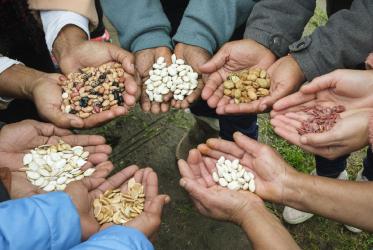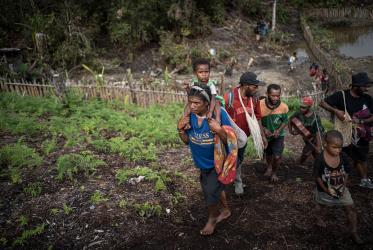The 16 days of Activism against Gender-Based Violence serve as a reminder to the world that such violence remains widespread. Women from diverse social, economic, political, religious and other backgrounds are vulnerable to violence. It is true that some men too are survivors of gender-based violence. However, by far, more women than men are facing violence in intimate relationships, at workplaces, within religious institutions and in other settings. Sadly, religion has denied many women survivors of gender-based violence access to justice.
In my own work with predominantly male religious leaders, three main reactions to gender-based violence can be identified. In the first instance, there is a tendency to minimise the challenge. Some religious leaders deny the statistics relating to women’s vulnerability to gender-based violence (one in three). Others admit that such violence is a reality, but quickly add that there are other, more demanding issues.
Second, there is tendency to quickly bring up the reality that some men too are enduring gender-based violence. Thus, some religious leaders are keen to stop the debate on gender-based violence by “levelling the playing field” and insisting that since some men are also on the receiving end of the violence, there is really no need to focus on violence against women.
Third, other religious leaders deflect attention by restricting gender-based violence to “bad people out there,” that is, outside the structures of religious institutions. Yet, we know that the “sacred canopy” of religion has not prevented women from experiencing violence.
We need to undertake urgent, prophetic action to address gender-based violence. We must challenge the male supremacist ideologies that lubricate processes that enable those of us who are men to perpetrate such violence. In our homes, schools, churches, communities, nations and continents, we must be seized with righteous anger to counter this evil.
Is it not scandalous that even during our commemoration of the “16 days,” women and girls continue to be killed, violated and harassed in different parts of the world? For how long shall we continue to listen to bombastic speeches denouncing gender-based violence, yet congregate the following day to bury women and girls who would have been killed by their ultra-possessive partners who regard themselves as the “owners” of the women?
Women’s access to public space must not be an act of charity that we who are men concede at our own convenience. No. This world was created by God for all of us. Neither must we who are men abuse sacred texts to justify or downplay violence against women. It is criminal and unjust. We must invest in making the world safer for everyone. We must support initiatives such as the Thursdays in Black campaign. Its vision of a world without rape and violence can be actualised in our own time, if we take the right course of action.
No. We cannot baptise violence.







